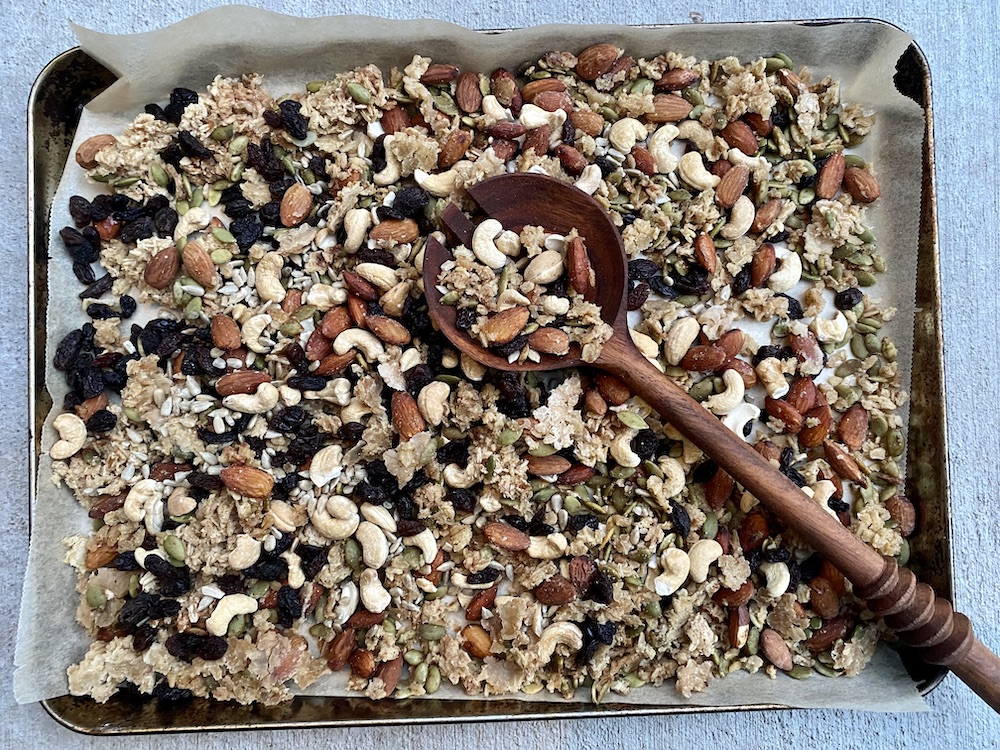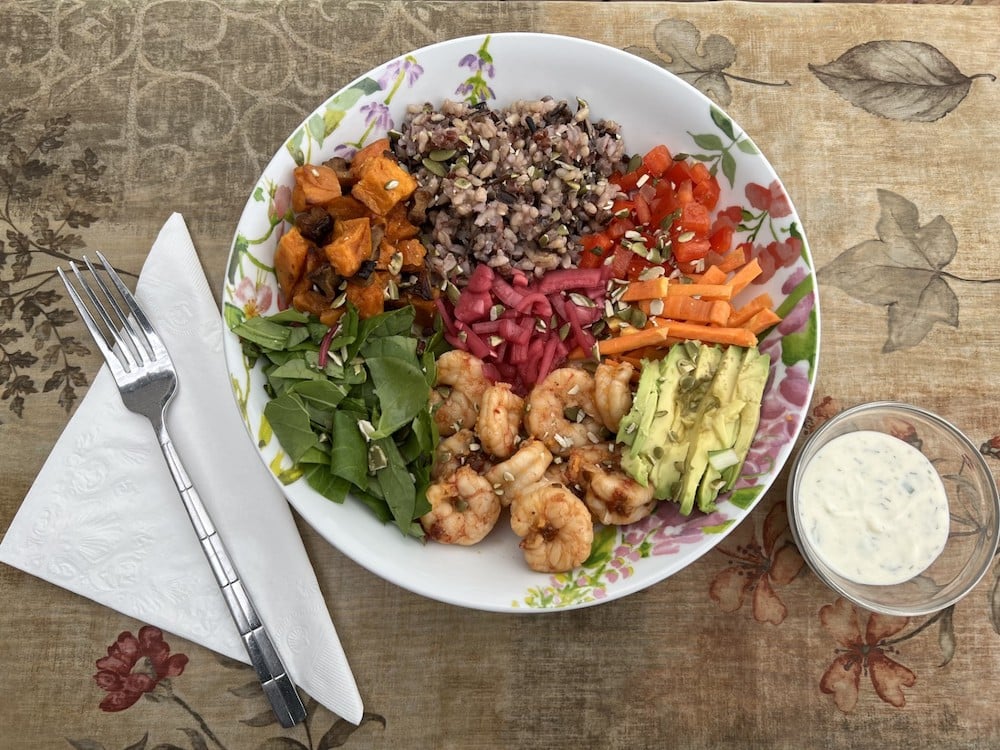
Share this post!
If you saw Kate Sheets as a child, she would be roaming around the grocery store looking for the “healthier” Iron Kids bread.

A native of a small farm town in Illinois, her interest in health became more personal when she started to have more serious health concerns in her 20s. Seeing a naturopathic doctor in Boulder, Colorado, and changing from an overly processed diet to a whole foods diet with supplementation helped to improve her health.
“I was convinced that was the way to live,” she said.
Though little Kate’s choice was a step in the right direction, her schooling at NTI in 2014 earning her a certificate as a Master Nutrition Therapist has brought her to some fundamental principles of living a holistic – or “whole body” – lifestyle on a tight budget.
“It is about making healthy eating a priority, and choosing the most nutrient-dense foods which are your whole foods.”
Last time we received some practical tips from Chef Tracy. This time around, we’re going to look at those two principles from a nutrition therapist’s perspective: what does it mean to prioritize healthy eating, and how and why does one choose nutrient-dense foods?
Priorities and Budget
I don’t need to remind you again of the impact of rising food costs on your monthly financial statement. In times of greater scarcity, budget gurus go back to one principle: priorities. Our priorities reflect our lifestyle. Even in times of poverty, eating healthy can be an attainable lifestyle when prioritized in the budget. As food prices rose, Kate’s household chose to slightly increase their grocery budget and decrease their eating out budget.
“Making coffee at home and eating out once a month instead of once a week helps us save on food,” Kate said.
Being a mother of two, Kate knows that time can be money. Sacrificing convenience does require a lifestyle shift – and when it is a holistic, or “whole body,” it can include making that sacrifice in one area an investment in another.
Part of living a holistic lifestyle is fostering relationships. Instead of seeing the sacrifice of time to cook as a sacrifice of time with family, consider making cooking a family affair. Cooking Matters has tips on what certain ages of children can do best in the kitchen, as well as tips on kitchen safety.
If you do want to save on time, Kate suggests freezing extra food so you can easily thaw meals in a pinch.
“For those of you like myself who pick up the ‘freezer’ taste and texture of frozen fruits and vegetables, I suggest soups and smoothies to disguise this,” she said.
Variety – And a Lot of It
The second principle Kate emphasizes with her clients is to eat a variety of whole foods. If one were to look at budgeting calories like budgeting money, whole foods meet the mark for efficiency.
“The foods that initiate the most health-building conversations within the body are nutrient-dense foods, or foods that are rich in nutrients per calorie,” Kate said. “Whole foods contain not only the essential nutrients that the body needs to function, but other healthful substances like phytonutrients, that give the body additional support.”
Foods that are most nutrient dense are often found on the outskirts of the grocery store: produce, herbs, eggs, and meat. There is a growing amount of research suggesting that organic foods can be more nutrient dense – not to mention with less exposure to chemicals and hormones that can cause other health problems.
“The more variety we eat the more vitamins, minerals, and phytonutrients we get.”
In fact, each color of a plant denotes a different type of phytonutrient.
For instance, red-colored fruits and vegetables are high in the antioxidant lycopene, which can protect against cancer. Orange-colored plants are high in beta cryptothanxin, which can empower intracellular communication leading to better heart health. Greens contain phytonutrients like sulforaphane that can inhibit the proliferation of cancer. Blues and purples contain anthocyanins, which are antioxidants that can slow the aging process.
Not only is variety good for the economy of the body; but it’s also good for the economy of your pocketbook. Shopping produce on sale each week cuts costs and can help you try something new. And you might be surprised with which particular foods are more affordable than the ones you tend to purchase.
Subscribing to online grocers such as Misfits Market provides sustainably sourced organic produce delivered to your doorstep for up to 40% off grocery store prices. Variety is built into the equation.
Be a Coupon Fiend
Remember when your mom used to look through the Sunday paper and cut out all the coupons? You too can make that cool again. Most grocery stores have loyalty programs that send coupons or automatically generate them catered to your spending habits. So if you tend to buy organic whole foods, they will find a way to make it cheaper for you.
Natural Grocers has the {N}Power customer rewards program that provides special discounts on staples like eggs, avocados, and whole chickens.
Make it a Habit
Eating healthy necessitates habit building, which is why having a nutrition therapist to accompany lifestyle changes and even budgeting can be very helpful. In Kate’s time as a nutrition health coach at Natural Grocers, she worked with people from all different backgrounds and budgets. You can find other NTI grads who have their own practice to help you achieve your goals.
Kate’s found that the most successful people she’s worked with stuck to a meal plan. Stick around for our last installment of the series where she shares a meal plan for a family on a budget.
_________________________________________________________________________________________________________________
About the author: Lisa Driscoll is a student at NTI’s Nutrition Therapist Master Program. Having studied journalism and vocal performance in undergrad, she enjoys using her voice to share the benefits of living a holistic, integrated lifestyle in writing. You can find more of her writing in the Baltimore Sun, Classical Singer Magazine, Capital News Service, and FOCUS blog.
About Nutrition Therapy Institute’s Holistic Nutrition Certification
Since 1999, NTI has provided students with the highest quality in nutrition training by offering comprehensive holistic nutrition courses. Interested in starting our science-based nutrition courses and earning your holistic nutrition certification? Attend an informational webinar to learn more by signing.
Image: Image by Mark Stebnicki from Pexels
Share this post!


















